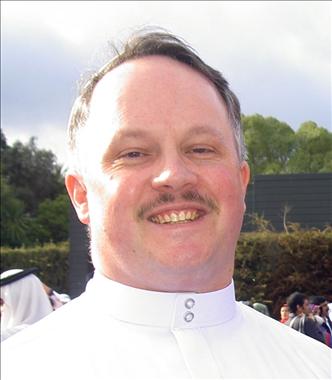 Above all else among the different acts of worship, Ramadan is a period of cognitive reading, reciting and meditating upon the Holy Quran and the sacral message of monotheism within.
Above all else among the different acts of worship, Ramadan is a period of cognitive reading, reciting and meditating upon the Holy Quran and the sacral message of monotheism within.
In general, the month marks a time of fasting, penance, comprehensive prayer and a heuristic moral probity for millions of Muslims around the world, including approximately 40,000 Muslims in New Zealand.
In ‘Surah Al Maidah’ (Verse 48), the Holy Quran teaches us to ‘Fa-Stabiqul-Khayraat’ (‘Strive as in a race in good deeds’).
The word ‘Istabiqu’ conveys the meaning ‘getting ahead’ and one translation has it as ‘so race to (all that is good).’ The use of the accusative feminine plural noun ‘Khayr’ in this distinctive chapter has been translated from classical Arabic as ‘Goodness,’ but is also often presented as ‘good deeds’ or even simply as “Virtue” elsewhere in the sacred scriptures.
Linguistically, the word itself is based on the trilateral root ‘Kha-ya-ra,’ variations of which turn up nearly 200 times in the Holy Quran.
Commenting on this ‘Ayat’ from the later Medina period, the great Muslim president of Bosnia, Marhum Alija Izetbegovic (1925-2003) once said, “We can strive only when we strengthen the consciousness of our identity. Conscious Muslims are ready to give and receive, without throwing their authentic values into oblivion.”
Unique revelations
Conscientious Muslims in New Zealand can learn from this insightful point during Ramadan by focusing and revitalising their personal efforts to strive to memorise the Holy Quran as the ‘Ipsissima verba dei,’ and to study the unique revelations therein.
Certain passages in the textus receptus (‘Received Text’) of the Holy Quran are illusive and can be difficult to parse, but the existential and spiritual rewards are irrefutable.
At a broader level, inside the Mosque for example, this is perhaps one occasion when all Muslims put aside their cultural baggage and various folk traditions and express one faith.
For one sacred month, we really are (or should strive to be) one people, undivided New Zealand Muslims. Outside the Mosque, this increased piety also extends towards non-Muslims during this period.
Common Morality
In recent years, there have been admirable efforts to bridge the gulf between the differing religious traditions through ‘Interfaith Dialogue’ based on common values and morality shared by all humanity, especially in New Zealand.
Former presidents of the Federation of Islamic Associations in New Zealand (FIANZ) Dr Hajji Khalid Sandhu (Wellington) and the late Hajji Abdul Rahim Rasheed (Auckland) have been active participants in this Forum, contributing enormously to the development of this initiative since its inception in 1990.
Ramadan is a time primarily to remember the Almighty alone and His favours to us in a peaceful, benign and above all well-fed society like New Zealand.
Hajji Alija Izetbegovic described communal fasting as “A union of asceticism and joy.”
It is also an opportunity for local Muslims to pay gratitude for the blessings and ‘Khayr’ of living and eating here.
Abdullah Drury is a former social secretary of the Muslim Association of Canterbury. He lives in Hamilton. Email: abdullah@xtra.co.nz




